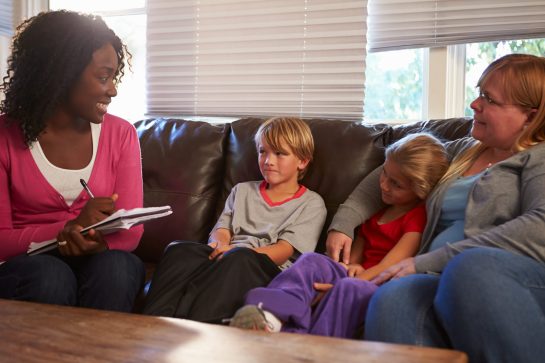Care coordination is the future of health and human-service organizations, but stakeholders and community members are essential to its success. Social workers are key to implementing effective and lasting community care coordination.
The Rise of Care Coordination
While care coordination has been around for over a decade (previously known as the chronic care model), it has only continued to gain popularity among health and human-service organizations in recent years. It’s easy to see why—care coordination can reduce costs, improve outcomes, and expand outreach.
It doesn’t come without challenges, however. Care coordination requires a major commitment. It’s best implemented by community stakeholders who care about both the individuals in need of social services and the organizations that provide them.
Who better to orchestrate this coordination than social workers? As liaisons between services and people, social workers are the key to effective and lasting care coordination.
What Is Care Coordination?
If you work in the social-services sector, then chances are you’ve heard of care coordination before. But what exactly does this term mean? And how does it apply to health and human-service organizations?
At its core, care coordination is the synchronized effort of health and social-care providers to help a single patient receive comprehensive, integrated care. The term is used interchangeably with “chronic care.”
Care coordination is the synchronized effort of health and social-care providers to help a single patient receive comprehensive, integrated care.
Care coordination is simple: make sure all the doctors and social services share relevant information, like test results and medications, so they can effectively serve the same patients.
However, it’s a lot more complicated in practice. Each organization might have their own process of record keeping, information sharing, and result delivery. Some might be more organized than others. By coordinating together, organizations can avoid duplicate services while ensuring their patients get effective whole-person care.
The Importance of Coordinated Care
Care coordination is revolutionary in that it connects communities in a novel way. By linking providers together, coordinated care can cut out the “middle man” and provide a way for individuals to receive critical, whole-person care.
Sound too good to be true? The good news is it’s not. With effective case management, care coordination is becoming more and more accessible for large and small organizations alike.
However, there is a caveat. Care coordination doesn’t just happen. It requires detailed and continual updating. This part of the process is where social workers become not just effective but essential.
Social Workers and Coordination
For care coordination to be most successful, it requires someone (besides the individual receiving care) to ensure the patient attend appointments and that the community organizations adequately provide services without “doubling up.”
(Doubling up is a common term in health and human service organizations that refers to two or more organizations providing the exact same care to individuals unnecessarily, thus consuming resources that could otherwise be used to help more people).
When a social worker—or someone attuned to both the needs of individuals and to the restraints of organizations—is able to step in on behalf of the person receiving care, they can orchestrate the multi-faceted care that all individuals need.
The reason social workers are uniquely adept at coordinating community care is that they can see both the perspectives of the organization and the individual. Without this liaison, it is unfortunately easy for recipients to fall through the cracks.

Why Social Workers Are Key
What is it about social workers that make them uniquely important to care coordination?
In a word, experience.
Social workers are often the ones on the ground experiencing the impact of health and human-service organizations. Their experience at the grassroots level can help inform coordination in a tactile, measurable way.
One of the biggest reasons most social workers enter this industry is a desire to help others. By wanting what is best for both the patient and for the organization, social workers can maximize the goal of care coordination: improving and expanding social care.
In practice, organizations that want to implement care coordination can begin by consulting social workers on their team. If your program does not have an available social worker, chances are that a fellow community organization may be able to help. After all, this is the point of coordination: pooling resources to improve breadth of care. Consider the following fields where social workers can be found:
- Mental and behavioral health
- Food insecurity
- Healthcare
- Clinical social work
- Homelessness services
- Veterans’ affairs
- LGBTQ+ outreach
- Child welfare
- School social work
- Refugee resettlement
- Workforce development
The future of care coordination needs social workers in order to succeed. Thankfully, social workers are uniquely prepared to ensure that this happens. Here at Eccovia, we are dedicated to expanding the role that coordinated care plays for health and human-service organizations.



